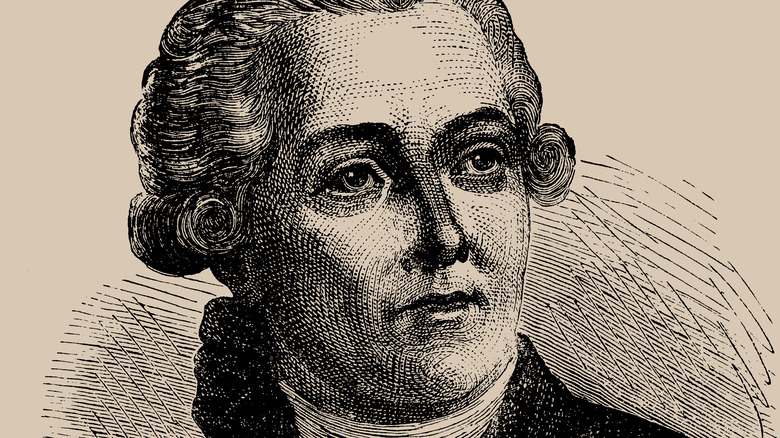Here's Why This Chemistry Pioneer Was Beheaded
French nobleman Antoine Laurent Lavoisier's work in chemistry has memorialized him as a pioneer that helped revolutionize the field. Concerns over his alleged tendency to borrow work from others aside, per History Today, he is credited with the development of the scientific method and the reformation of scientific nomenclature.
Unfortunately for Lavoisier, his accomplishments were not enough to shield him from the chaos and upheaval of the French Revolution in 1789, which marked the beginning of the end for him and other purveyors of science. According to Encyclopedia Britannica, Lavoisier tried to no avail to speak to the power of his chosen field. Despite his achievements in both chemistry and biology and his optimism for the future of these disciplines, he was ultimately viewed as a vestige of the Republic's past who needed to be excised.
Lavoisier was beheaded by guillotine in May 1794. His death came alongside other members of the General Farm, a tax farming operation that was contracted by the royal government to collect fees. Like others with the financial enterprise, Lavoisier was able to amass a great deal of wealth for his work on behalf of the king, which painted a target on his back amid the revolution.
Lavoisier's legacy lives on in his work
The abrupt end to Lavoisier's life and its effect on the field of science was underlined by mathematician Joseph-Louis Lagrange. "It took them only an instant to cut off that head, and a hundred years may not produce another like it," he said, per Encyclopedia Britannica.
Per Science History Institute, Lavoisier's system of chemical nomenclature was the foundation for names that are still used to this day. His creations were notable not just for helping to distinguish different substances, but for reflecting the theory behind each one.
Antoine Laurent Lavoisier's work is also credited for the development of the Law of Conservation of Mass, which states that mass is neither created nor destroyed in any given chemical reaction — it simply changes form. In a 2011 piece published in Nature Education Knowledge, researchers Robert W. Sterner, Gaston E. Small, and James M. Hood noted that Lavoisier's foundation for the modern field of chemistry had ripple effects into multiple fields of science, including ecology.

